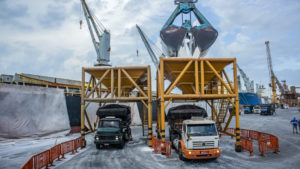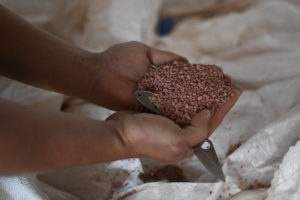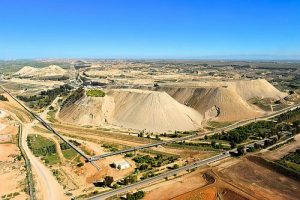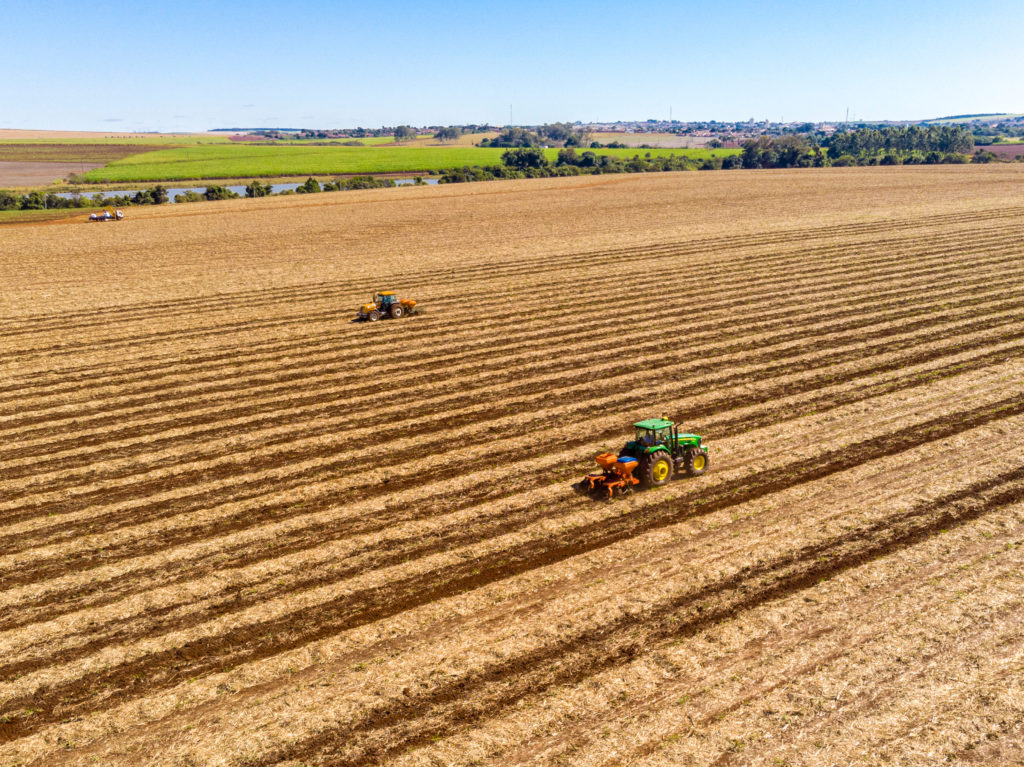São Paulo – Egypt, Lebanon, Morocco, Tunisia, Jordan, Oman, the United Arab Emirates and Saudi Arabia are Arab countries that could supply Brazil with some of the fertilizers the country buys from Russia. The information is part of the study “Opportunities for Brazilian imports from the Arab countries in the fertilizer industry,” created by the Market Intelligence department of the Arab Brazilian Chamber of Commerce (ABCC) and presented to the minister of Agriculture, Livestock and Supply of Brazil, Tereza Cristina, last week.
According to the survey, ammonium nitrate could be supplied by Egypt, ammonium nitrate-calcium carbonate fertilizer mixtures by Lebanon, ammonium sulfate by Egypt and Morocco, nitrate-phosphate mixtures by Oman and the UAE, mixtures of urea and ammonium nitrate in aqueous or ammoniacal solution by Oman, Saudi Arabia and the UAE, double salts and calcium nitrate-ammonium mixtures by Jordan and the UAE, and sodium nitrate by the UAE. These are all products Brazil buys from Russia but not from the Arabs, who are suppliers in the area, too.

The survey says that Brazil imports from Russia USD 337 million in ammonium nitrate, USD 16.9 million in ammonium nitrate mixtures and USD 16.9 million in ammonium sulfate per year. Almost all nitrate comes from the Russian market, while ammonium nitrate is imported from other suppliers, too, grossing USD 122 million a year, and ammonium sulphate reaches USD 634 million.
The study was carried out by the ABCC to help Brazil cope with the fertilizer supply gap created by Russia-Ukraine war. The Russians are a major fertilizer supplier for Brazil, which is in turn a key player in the global food supply chain, including to the Arab states. Brazil is the world’s fourth largest agribusiness exporter, only behind the United States, the Netherlands and Germany.
“Brazil is paramount to ensuring food security to the Arab states as it’s the second largest agribusiness supplier to the Arabs, only behind India. We can see the complementarity of the trade between Brazil and these countries in the sector, considering that 40% of Brazilian imports from the Arabs are fertilizers, a crucial product for Brazilian agribusiness,” reads the opening text of the study signed by the ABCC president Osmar Chohfi and secretary-general Tamer Mansour.

The diagnostics put forward by the ABCC goes beyond substituting the Russian supply to suggest there’s a potential for larger imports of fertilizers from the Arab countries in general. Morocco, which exported USD 896 million in fertilizers to the Brazilian market in 2020, could reach USD 2.48 billion, Oman could go from USD 65 million to USD 1 billion, Egypt from USD 90.7 million to USD 1 billion, Saudi Arabia from USD 308.5 million to USD 938.7 million, and Jordan from USD 29.9 million to USD 878.8 million.
The largest room to grow in Arab fertilizer exports to Brazil is in potassium chloride, urea, diammonium dihydrogenorthophosphate, fertilizers containing nitrogen, phosphorus and potassium, superphospathes, hydrogen-diammonium orthophosphate, other nitrogenate mineral or chemical fertilizers, other mineral or chemical fertilizers, other potassic mineral or chemical fertilizers, and others. The names are mentioned as per listed in the MERCOSUR Common Nomenclature (NCM).
The survey also points out types of fertilizers that could start being brought in by Brazil from the Arab countries but are not imported from them yet. Some of them match those the country could substitute the Russian supply with. The ABCC says that the Brazilian market could start buying from the Arabs ammonium sulphate, ammonium nitrate, ammonium-nitrate-calcium carbonate mixtures, fertilizer tablets, double salts, calcium nitrate-ammonium mixtures, and others.
Big in fertilizers

Taken together, the Arab countries are the world’s largest fertilizer supplier, followed by Russia, China, Canada and the US. Fertilizer exports from the region to the world climbed 67% from 2016 to 2022, reaching USD 10.4 billion, according to figures from the International Trade Centre mentioned in the study.
Morocco, Qatar, Saudi Arabia, Egypt and Oman account for 80% of the fertilizers exported by the Arab countries. The region supplies the world mostly with urea, hydrogen-diammonium orthophosphate, ammonium dihydrogenorthophosphate, potassic mineral and chemical fertilizers, and mineral and chemical fertilizers containing nitrogen and phosphorus.
Brazil, a giant to be supplied
Based on market figures, the study shows that Brazil ranks as the world’s fourth largest fertilizer consumer, behind China, India and the US. In 2021, Brazil imported USD 15.16 billion in fertilizers. The country’s annual consumption is 30 million tonnes for a production of only 7 million tonnes. This means Brazil imports around 80% of what its crops consume.

Brazil is the leading destination of fertilizer exports from the Arab countries, and they supply 26% of all that Brazil imports in the sector. From 2017 to 2021, Brazilian imports of fertilizers from the world climbed 107%, while purchases from the Arab countries skyrocketed even further by 135%, from USD 1.79 billion to USD 4.2 billion. Taken together, the Arabs are Brazil’s largest supplier in the sector. But if the countries are considered individually, Russia is still the largest supplier.
The Russians exported USD 3. 53 billion in fertilizers to Brazil in 2021. The country supplies Brazil mainly with potassium chloride, ammonium dihydrogenorthophosphate, urea, ammonium nitrate, and fertilizers containing nitrogen, phosphorus and potassium. The largest volume, USD 1.3 billion, is in potassium chloride.
The study was sent earlier this week by the ABCC to Brazil’s Ministry of Foreign Affairs, Ministry of Agriculture and Arab embassies in Brazil and later presented in person in a meeting between representatives of the ABCC and embassies with minister Tereza Cristina. The topic was taken into account in the National Fertilizer Plan launched on Friday (11) and will have a follow-up.
Translated by Guilherme Miranda




